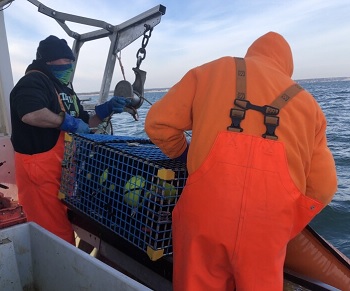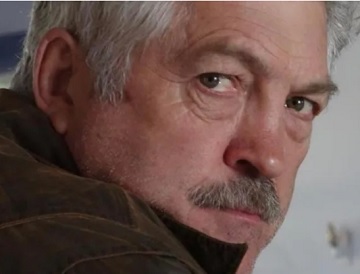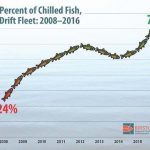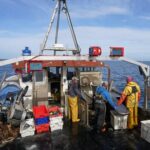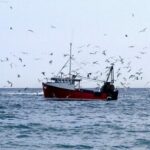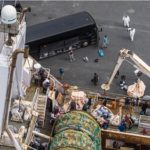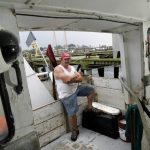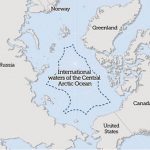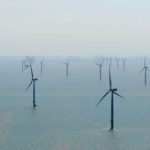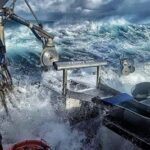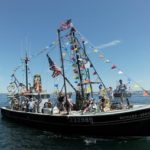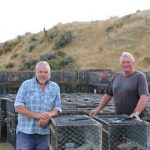Monthly Archives: January 2022
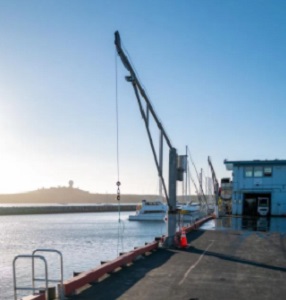
Public hoist can’t be used for commercial fishing – Commercial fish buyers may be on hook for harbor fees
The San Mateo County Harbor District is considering how to regulate sales between visiting fish buyers and commercial sellers within Pillar Point Harbor and will soon be discussing ordinances that will impact how much non-berthed vessels will pay in fees. After discussing the option of requiring visiting fishing vessels to obtain a Commercial Activity Permit before offloading product to a tenant fish buyer, the board directed staff to come back with an amended ordinance so that it would not officially require those visiting boats to pay $250 for the permit. This new ordinance will also determine if wholesale offloads to non-tenant buyers will be prohibited from the floating docks. >click to read< 09:39
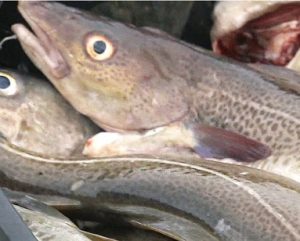
Iceland: Coastal Fishermen Unhappy With Reduced Cod Quota
Small boat fishermen in Iceland are unhappy with the government’s decision to reduce their cod fishing quota from 10,000 tonnes down to 8,500 for the coming summer season, Last year a total of 670 fishermen held coastal fishing licences. “Certain politicians predicted [coastal fishing] would explode. However, since the current system was implemented, the number of fishermen has fluctuated between 600 and 726. “While handline fishing is romantic, there’s a lot of hard work and sweat and tears mixed in with the romance,” >click to read< 08:55
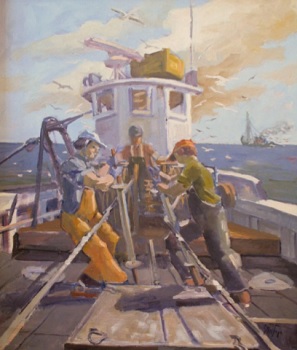
Cape Ann Museum celebrates family owned fishing vessels – seeking community participation
As the great-granddaughter, granddaughter and daughter of fishermen, Nina Testaverde Goodick always shared her family’s profound pride in its fishing vessels over the generations. “These fishing vessels were at the very core of our family,” the Gloucester woman said. “They provided for us — the Linda B., Peter & Linda, Sea Fox, Nina T. and The Midnight Sun to name a few. In our homes, you could always find a painting of these vessels, hanging in a place of honor.” In that spirit of pride and in anticipation of the city’s 400th anniversary, the Cape Ann Museum is seeking community participation for a future special exhibition about family fishing vessels. >click to read< 08:12

Alaska Commercial Fisherman Paul Richard Harder has passed away
Paul Richard Harder died unexpectedly at home in Hawai’i on Dec. 13, 2021 of a heart attack. Paul was born Aug. 22, 1951, in Seattle to Ole and Mary Harder. Paul started commercial fishing in Alaska with his father at 12; they were shipwrecked four days his first season but that didn’t deter him. He was a successful fisherman throughout Alaska. One of his Kodiak seining highlights was making a set of more than 40,000 pounds of red salmon; he had to radio his dad to load both of their boats. Paul’s big smile and sense of humor will be greatly missed. Paul’s Celebration of Life is deferred to a later date. >click to read< 21:15
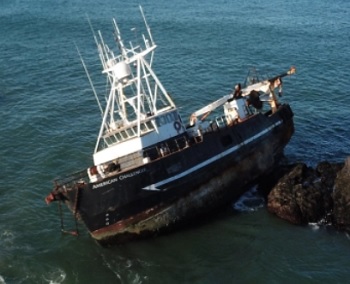
Approval granted for removal of grounded American Challenger
The U.S. Coast Guard’s top commander has authorized use of federal dollars from the Oil Spill Liability Trust Fund to dismantle a 90-foot, decommissioned fishing vessel grounded on the rocks off the Marin Coast since last March. But the long-awaited consent means little until rough winter ocean conditions subside long enough to make salvage operations safe, officials said. The salvage “is approved, so it’s just a matter of time now,” said Eric Laughlin, a spokesman for the California Fish and Game Department’s Office of Spill Prevention and Response, which is handling communication for Unified Command. >click to read< 19:02
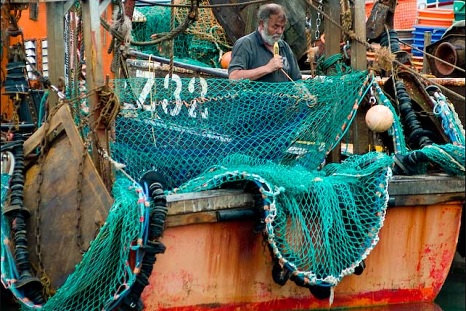
Newlyn: Grimmy Mike RIP.
There are, or rather were, two well-known skippers called Mike in Newlyn, both referred to by their ports of origin, Milford Mike and Grimmy Mike. Whilst Milford Mike is currently a contender for the oldest working fisherman in the port, sad news has reached Newlyn that Grimmy Mike has gone to the big wheelhouse in the sky. For those who are not aware, Mike Mahon, better known as Grimmy Mike became something of living legend in  Newlyn and beyond. The photo above epitomises Grimmy’s political fishing career – the little guy steaming ahead, singlehandedly trying to champion his beloved fishing industry battling against the full weight of legislation in the form the much-hated Common Fisheries Policy. Grimmy’s finest moment came when he sought the support of Canadian Fisheries minister, Brian Tobin who flew to Newlyn for the 1995 Fish Festival. photos,>click to read< 14:47
Newlyn and beyond. The photo above epitomises Grimmy’s political fishing career – the little guy steaming ahead, singlehandedly trying to champion his beloved fishing industry battling against the full weight of legislation in the form the much-hated Common Fisheries Policy. Grimmy’s finest moment came when he sought the support of Canadian Fisheries minister, Brian Tobin who flew to Newlyn for the 1995 Fish Festival. photos,>click to read< 14:47
Athearn Marine Agency Boat of the Week: 70′ Steel Clammer/Scalloper with Mass. Surf clam permit
 To review specifications, information, with 60 photos, >click here<, To see all the boats in this series >click here< 12:15
To review specifications, information, with 60 photos, >click here<, To see all the boats in this series >click here< 12:15
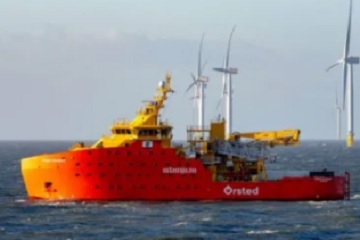
Offshore Wind Farms: Why Wind Power Expansion Plans Don’t Add Up
Akin to pushing on string, you can keep building these things ad infinitum and add nothing in terms of meaningful power generation capacity. It doesn’t matter whether a wind power fleet comprises a hundred, a thousand or a million wind turbines, when the wind stops blowing, they will deliver an almighty, collective doughnut. And it’s their frequent zero output efforts that bring us to the current net-zero madness. And despite the colossal failure of wind power to deliver during 2021, those pushing net-zero targets are pushing zero reliability targets, too. The UK ‘must build equivalent of worlds biggest wind farm every 10 weeks for next 20 years’ to hit net zero targets >click to read< 10:49

How to make the most of Dungeness crab season on the Sonoma Coast
Shawn Patterson, who fishes wild Pacific king salmon during its local season, has established Lisa Lu Fishery LLC and formed a partnership with Adam King. They recently acquired the crab boat F/V Susan E from a Bodega Bay fisherman. Lisa Lu Fishery is selling live crab for $10 a pound directly to consumers and $8 a pound to restaurants. Prices are higher than they often are, but that’s the case with almost everything during the pandemic. He expects to stay in the water until the state closes the season, after the bigger boats have pulled their pots and concluded their season. “We expect to have plenty for direct-to-consumer sales and farmers market sales,” >click to read< with some nice recipes! 09:47

Federal Court rules on the side of fishermen on Class B licence policy
At the end of December, the Federal Court of Canada ruled a judicial review of the decision prohibiting the sale of a Class B licence, in a court case initiated by Newfoundland fisherman Donald Publicover, would be allowed. Upon hearing the news that the wheels of justice had acted in the fishermen’s favour, and that change to the policy applied to Class B licences may be afoot, James MacDonald, a lifelong fisherman who currently holds a Class B lobster licence, said, “That’s tremendous and I think we deserve that … we were told, ‘Oh, if the time comes that you want to get your Class A licence back, you can get them.’ But, if we can get that, we can either hand down or sell the ones we have, that’s better than letting them die with us.” >click to read< 07:20
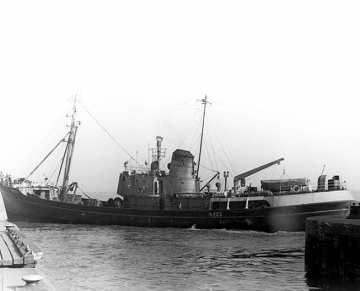
Families gather to remember Hull’s lost fishermen in memorial service for 1968 trawler tragedy
Three trawlers from the city sank within four weeks of one other. A total of 58 men lost their lives, leaving a scar on the city which is still being felt more than fifty years later. An annual Lost Trawlermen’s Day service is carried out on Hessle Road, where most of the fishing community lived during the time of the accidents. On the 18th of January, the St Romanus failed to return to Hull. All 20 crew members were lost at sea. On the 26th of January, the second trawler, the Kingston Peridot, was lost, along with its 20 men. On the 4th of February, the third trawler, Ross Cleveland was lost at sea, with 18 members of crew. One man, Harry Eddom, survived. video, >click to read< 20:23

New Jersey residents sue over offshore wind farm leases
A group of New Jersey residents have sued the Bureau of Ocean Energy Management to seek the reversal of its March decision to pursue the development of an area of ocean 30 miles off the coast of New Jersey for wind turbines. Community group Save Long Beach Island accused BOEM in Washington, D.C., federal court Monday of failing to prepare an in-depth report on potential environmental impacts of selecting 800,000 acres of the New York Bight to lease to developers that would install wind turbines. The group also says that the development could further imperil the North Atlantic right whale, one of the world’s most endangered large whale species. >click to read< 19:35

Commercial Fishermen/Marine Corp Veteran Mark Allen Chase has passed away in Newport, Oregon
Mark Allen Chase passed away on November, 28th 2021, at his home in Newport, Oregon, after a long and courageous battle with Neuroendocrine (carcinoid) cancer. Mark was born on June, 8th 1951, in Bellflower, California to his parents Ted and Shirley Chase. At a young age, Mark joined the Marine Corps and would serve in Vietnam where he earned a purple heart. He carried his patriotism and pride as a veteran with all he accomplished. After his service, His love of the ocean brought him to his 50 year career as a commercial fisherman and his home to Newport, Oregon. He owned and operated the fishing vessel F/V Norma M out of Newport and raised his four children to be avid fishermen as well. >click to read< 16:21
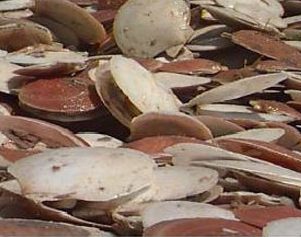
NOAA: Final Rule for Amendment 21 to the Atlantic Sea Scallop Fishery Management Plan
NOAA Fisheries filed a final rule to implement Amendment 21 to the Atlantic Sea Scallop Fishery Management Plan. The New England Fishery Management Council developed Amendment 21 to adjust the management of the Northern Gulf of Maine as well as the limited access general category individual fishing quota program to support overall economic performance of the fishery while allowing for continued participation in the general category fishery. Amendment 21, >click to read< 13:03
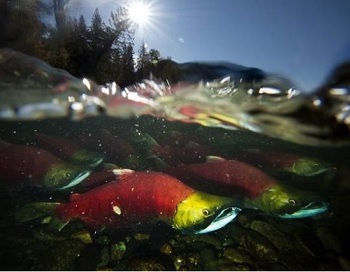
Alaskan fishing fleet catching huge proportion of B.C. salmon
As salmon runs in British Columbia hit record lows, commercial fisheries along the Alaska panhandle are catching a growing share of salmon bound for B.C. rivers, according to a new technical report. The report, which includes a detailed analysis on each B.C. salmon species caught in Southeast Alaskan interception fisheries, was commissioned by Watershed Watch Salmon Society and SkeenaWild Conservation Trust and comes as Canada and the United States begin their annual review of bilateral management under the Pacific Salmon Treaty. Many of B.C.’s largest salmon runs pass through Alaskan waters on their way home to spawn in Canadian rivers. >click to read< 11:50
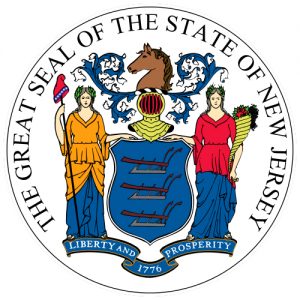
New Jersey: Bill Exempting Commercial Fishermen from State Unemployment Tax Now Law
Legislation sponsored by Senator Michael Testa and signed today by the Governor exempts commercial fishermen from a portion of the state unemployment tax. “Traditionally, New Jersey’s commercial fishermen have been on the hook for unemployment taxes, but they are not paid hourly wages and they have never been able to collect unemployment benefits,” Testa’s measure exempts commercial fisherman who are paid on the percentage of fish caught or a percentage of the selling price of those fish from the state unemployment law and its costly tax on earnings. >click to read< 09:47
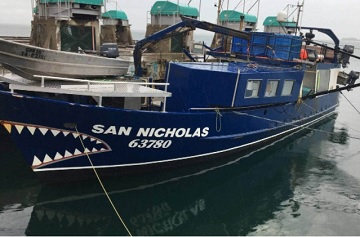
Fishing charges dismissed after ‘regulatory storm’,
Campbell McManaway steamed out of Bluff Harbour headed for Dusky Sound to fish for kina, unaware of the regulatory storm awaiting upon return. The fisherman found himself in a three-and-a-half year, $350,000 dispute with the Ministry for Primary Industries, after processing kina at sea in Fiordland in June 2018. In the midst of the legal dispute, McManaway was going into debt, paying up to $40,000 a month in legal fees and thinking about leaving the industry. >click to read< 09:03
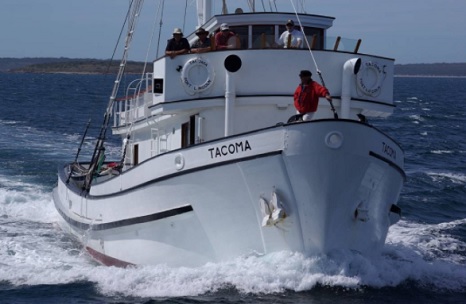
Tacoma’s 70 years: A personal perspective
Last month MFV Almonta sank on its mooring for a second time. This once proud member of the Port Lincoln tuna fleet now sits forlorn, half submerged in Porter Bay. It seems likely another part of the 60s tuna fleet is to be lost. I am guessing funds are short and too few people care enough to keep her afloat. This gives me pause for thought. A short distance away in the Marina sits the MFV Tacoma – afloat, fully preserved, debt free, self-funded and heritage listed. >click to read< 07:36
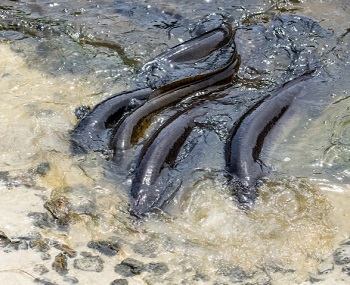
Eels – They may be Australia’s most hardcore animal
They may be no match for saltwater crocs or great white sharks, but for their size, our freshwater eels are surprisingly hardcore. These slippery fish can travel over land, take down serious prey, and climb walls, all without any freaking legs! Their shape-shifting rivals that of insects such as butterflies, moths and cicadas. And eels undertake one of the most epic migrations known within Australian waters, but to this day, their breeding grounds remain a mystery. Lurking in the muddy bottom of a river or dam is only part of an eel’s life. It’s like the Clark Kent bit. The rest is the stuff of fishy superheroes. photos, >click to read< with attached eel articles! 19:04
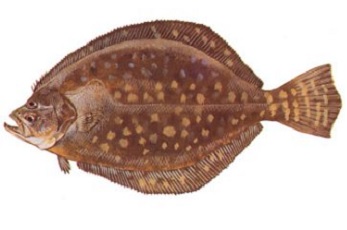
North Carolina: Southern flounder amendment going to advisory committees, DMF seeks comment
State fisheries managers are proposing more changes to southern flounder regulations to reduce flounder removals by 72%. The proposals include phasing out anchored, large mesh gill nets from the fishery. However, N.C. Division of Marine Fisheries staff want public and advisory committee input before they make any recommendations to the N.C. Marine Fisheries Commission. To continue reducing removals, the draft Amendment 3 contains a suite of additional proposed management options. Michael Loeffler said while phasing out the gill nets may reduce landings, the effect on both the economy and the fishery are uncertain. (I think we already know), >click to read< 15:00

Lawsuit filed to Protect Pacific Humpback from fishing gear, Can lawsuits save North Atlantic Right Whale?
The Center for Biological Diversity sued the National Marine Fisheries Service today for failing to protect endangered Pacific humpback whales from deadly entanglements in sablefish pot gear off the coasts of California, Oregon and Washington. According to Fisheries Service estimates, the sablefish fishery on average kills or seriously injures about two humpback whales every year. The fishery uses 2-mile-long strings of 30 to 50 pots. >click to read< Can Litigation Help Save the North Atlantic Right Whale From Extinction? – As conservation organizations and governments around the globe grapple with the devastating effects of climate change and overexploitation, the legal battle fought over the critically endangered North Atlantic right whale, one of the world’s most endangered large whale species, may provide insights into how litigation can help, or hinder, efforts to save species from extinction. >click to read< 13:41
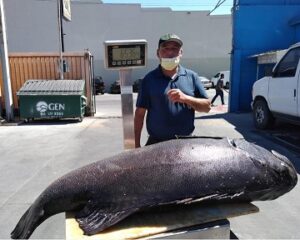
Giant sea bass: scientific research that found them critically endangered stopped at US-Mexico border
Giant sea bass live off the west coast of North America in both Mexican and U.S. waters. I have found that large differences in regulation and research effort between the two countries has led to a significant misunderstanding of giant sea bass population health. In California, commercial fishing for the species began in the late 1880s. Large fish used to be very abundant across the entire range, but the fishery collapsed in the early 1970s. As a response, in 1981 the U.S. banned both commercial and recreational fishing for giant sea bass, and there are many ongoing research and population recovery efforts today. The collapse and subsequent protection and flurry of research in the U.S. stand in stark contrast to Mexico. >click to read< by Arturo Ramírez-Valdez 12:14
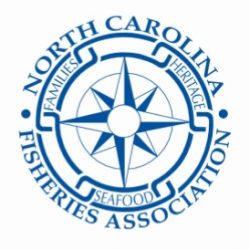
North Carolina Fisheries Association Weekly Update for January10, 2022
What the Wildlife Federation isn’t telling you about shrimp trawling in NC! Like the Coastal Conservation Association (CCA), the North Carolina Wildlife Federation has very strong opinions about commercial fishing, especially the use of gill nets and shrimp trawls to harvest seafood. They consistently provide their perspective on these issues to the public, and as I pointed out last week, they specialize in playing it fast and loose with the facts. I’ll certainly be providing you with more examples of the deception in the coming weeks. (continues) >Click here to read the Weekly Update<, to read all the updates >click here<, for older updates listed as NCFA >click here< 09:31
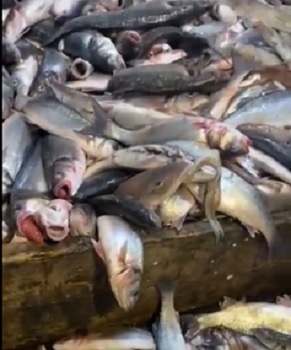
Looe-based fisherman’s tweet about dead bass sparks debate over rules
A fisherman’s tweet over a large haul of Bass fish off the Plymouth coast has sparked debate over the current rules on fishing. Andrew Giles took to Twitter with a shocking video which displayed a large haul of fish caught by accident by a trawler, all of which had to be thrown away again. Andrew, who owns the trawler, MFV Guiding Light, wrote: “Just crazy. This could have given the boys a much-needed lift after a very hard winter.” The issue highlighted not just issues regarding commercial rules to protect fish stocks, but also the ongoing thorny issue of Brexit and the British fishing industry as well as food poverty. video,>click to read< 07:35
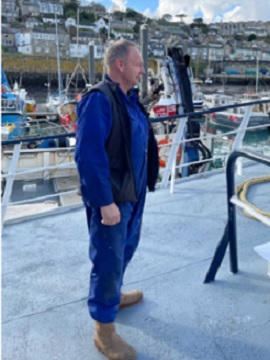
A year since Brexit, fishermen in Cornwall say they were ‘sold a dream’
Skipper James “Chunky” Chown makes the tricky task of boarding his trawler, the Ajax, at Newlyn Harbour in Cornwall, look easy. The fisherman moves from the quay, descends 10 metres down an iron ladder over a widening gap of turquoise sea, and onto the boat in a single fluid motion. When it comes to fishing, everything is difficult now, due to the new post-Brexit rules,,, It wasn’t supposed to be this way. Polls suggested that 92 per cent of the UK fishing industry voted to leave the EU, amid promises that they would benefit from “taking back control” of British waters. >click to read< 12:55
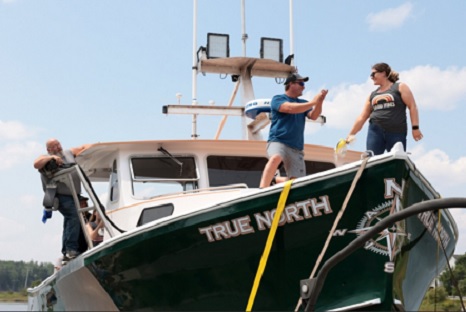
Patrice McCarron: Maine lobstermen are committed to protecting our ocean
In-depth, investigative reporting is increasingly rare these days. The resulting series, “The Lobster Trap” missed the boat, however, in its quest to invent a drama that places Maine’s lobster industry on the front line in the “battle over climate change.” From the lobster industry’s perspective, the series doesn’t accurately tell their story. Its seven key takeaways are disconnected from the people who were just a means to an end. This reporting dismisses, dehumanizes and minimizes fishermen’s role in mitigation and adaptation strategies, and it perpetuates a narrative that they are unwilling to engage in climate change conversations. >click to read< 09:21
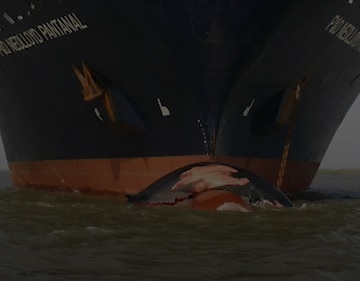
Ship strikes may be the difference between extinction and survival for whales
Ship strikes pose a serious threat to whales and have the potential to cause highly endangered subspecies to go extinct. The remaining 1.3 million whales left in our oceans are facing an increasing amount of shipping traffic when coming to the surface and travelling to their feeding or breeding areas. Global maritime traffic increased fourfold between 1992 and 2012. In some corners of the world, such as the Arctic, it actually doubled between 2013 and 2018. The number of whales, in the meantime, is on the decline. >click to read< 07:43
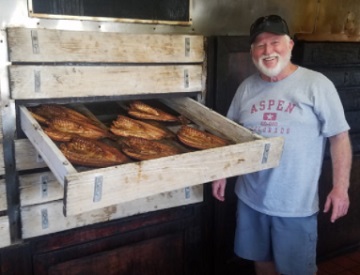
Seventy smokin’ years: Ted Peters’ unlikely fish tale
Pasadena Avenue was just two narrow, unpaved lanes when Ted Peters bought a single acre of mangroves and sand in 1950. There was no retail in the scrubby, salty wilderness, no professional buildings, no apartments, no condo towers. You could cast a line right into the water across the road. Peters had to build a seawall, and backfill the rear of his property, to keep Boca Ciega Bay out. Ted Peters Famous Smoked Fish is still there, on the same land  and in the same brown open-air wooden building Ted built with his half-brother and business partner Elry Lathrop, for their hard-earned and saved-up $15,000. Mike Lathrop, Elry’s son, now operates Ted Peters along with Jay Cook, Ted’s grandson. During the busy season, they go through around 2,000 pounds of fish per week. >click to read< 15:29
and in the same brown open-air wooden building Ted built with his half-brother and business partner Elry Lathrop, for their hard-earned and saved-up $15,000. Mike Lathrop, Elry’s son, now operates Ted Peters along with Jay Cook, Ted’s grandson. During the busy season, they go through around 2,000 pounds of fish per week. >click to read< 15:29






